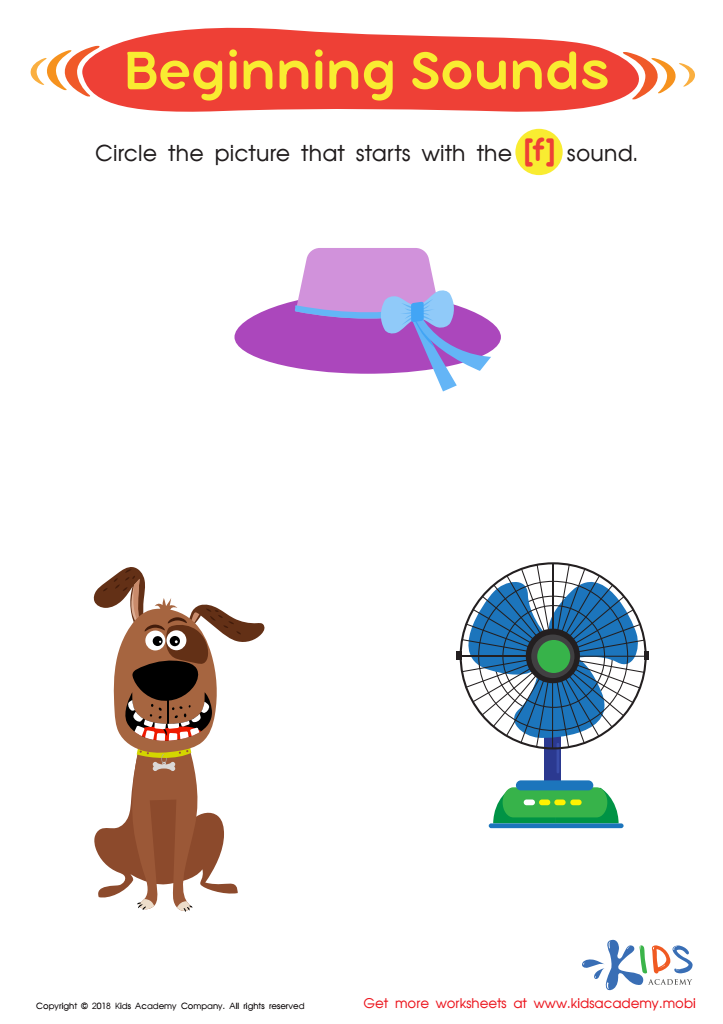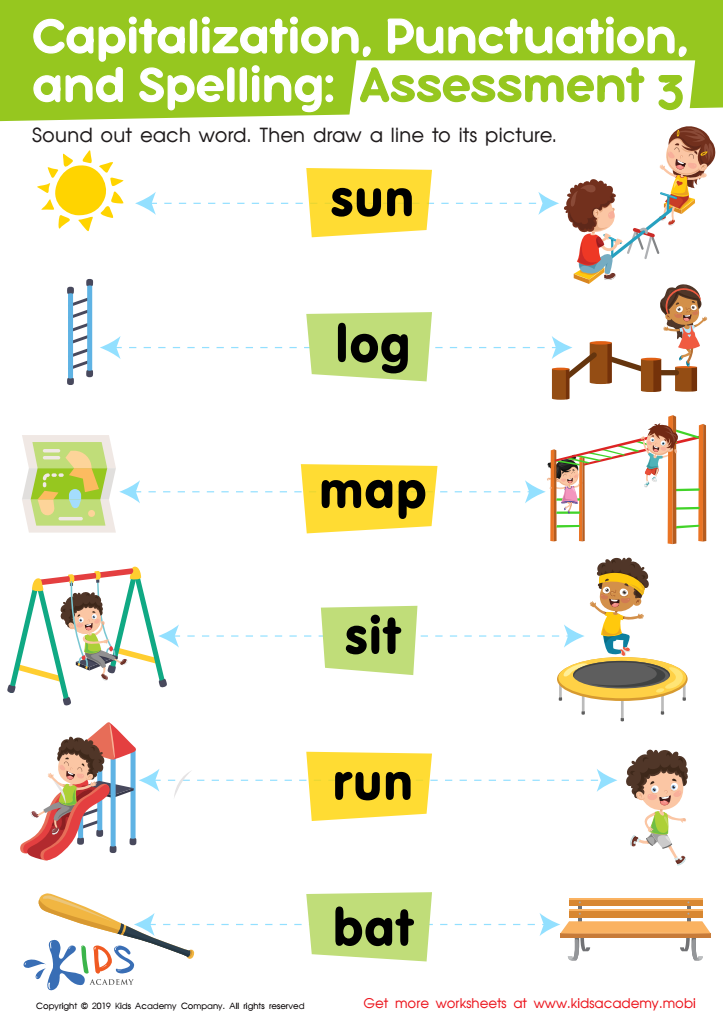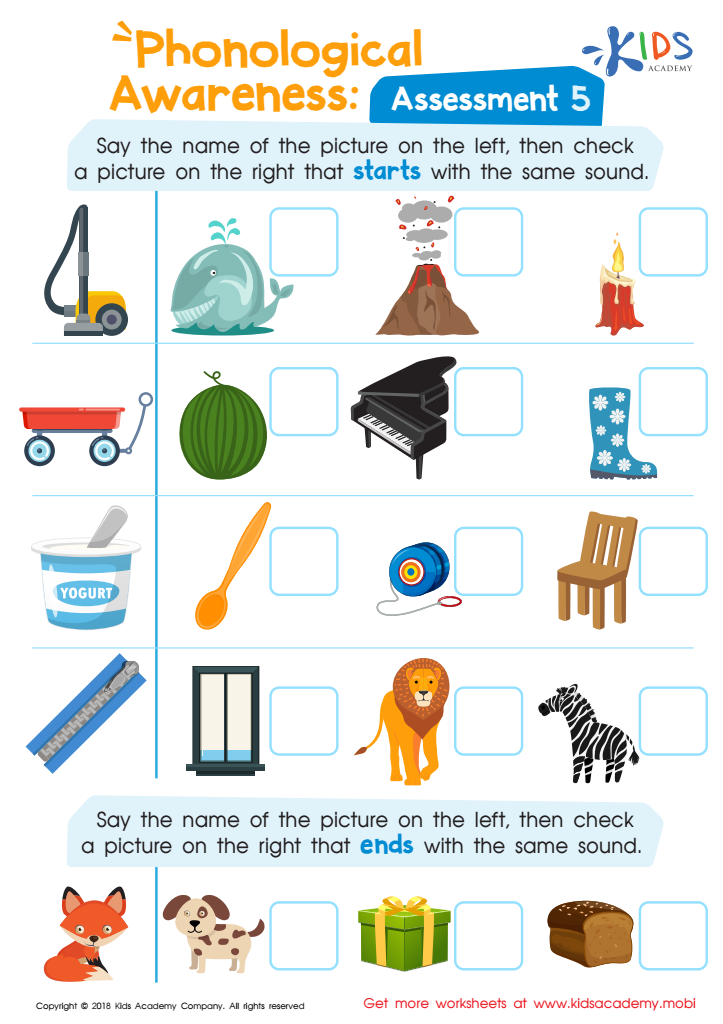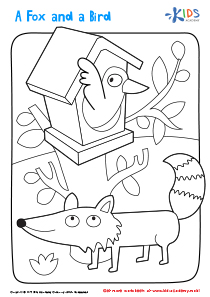Easy Phonics worksheets activities for 4-Year-Olds
3 filtered results
-
From - To


Beginning Sounds Assessment Printable


Capitalization. Punctuation. Spelling. Assessment 3 Worksheet


Phonological Awareness: Assessment 5 Worksheet
Easy Phonics worksheets activities serve as a foundational tool in the journey of literacy, especially for young learners. Phonics, the method of teaching reading by correlating sounds with letters or groups of letters, is an essential skill that supports children in decoding words efficiently. The utility of Easy Phonics worksheets activities lies in their simplicity and effectiveness in reinforcing these vital reading skills.
Firstly, these activities provide a structured approach that can significantly enhance a child's ability to recognize and manipulate phonemes (the smallest units of sound). This is crucial in the early stages of reading development where understanding the relationship between sounds and letters forms the basis for reading fluently. By engaging with Easy Phonics worksheets, children can practice these skills at their own pace, gradually building their confidence and proficiency.
Moreover, Easy Phonics worksheets are designed to be interactive and enjoyable, capturing the interest of young learners. This element of fun encourages consistent practice, which is key to mastering phonics. The variety of activities also caters to different learning styles, ensuring that every child can find a method of learning that works best for them. Whether through matching exercises, fill-in-the-blanks, or sound association tasks, these worksheets make learning to read an engaging and rewarding experience.
Additionally, Easy Phonics worksheets offer flexibility in learning. They can be used in classroom settings under the guidance of teachers or at home with the support of parents. This versatility ensures that children have access to phonics practice beyond the school environment, allowing for reinforcement of learning and opportunities for parents to engage in their child's educational journey.
In conclusion, Easy Phonics worksheets activities are an invaluable resource in teaching children to read. They simplify complex concepts, making learning accessible and enjoyable, which is essential for fostering early literacy skills. By integrating these activities into the learning process, educators and parents can provide children with the foundation they need to become confident and proficient readers.
 Assign to the classroom
Assign to the classroom










